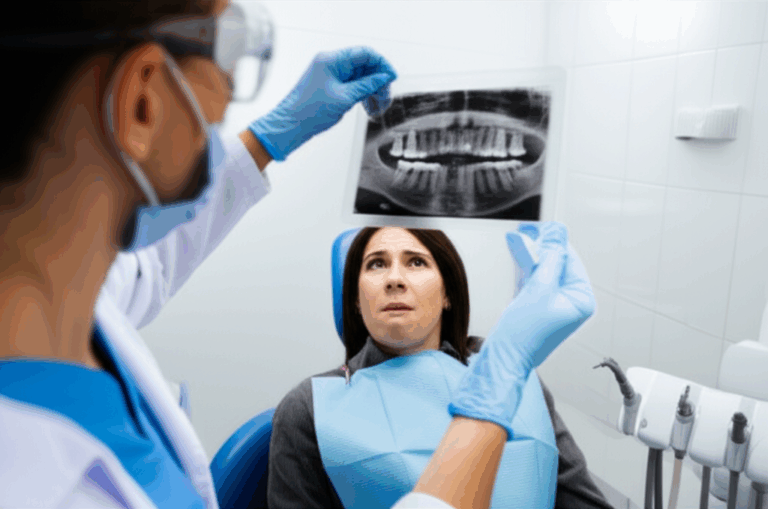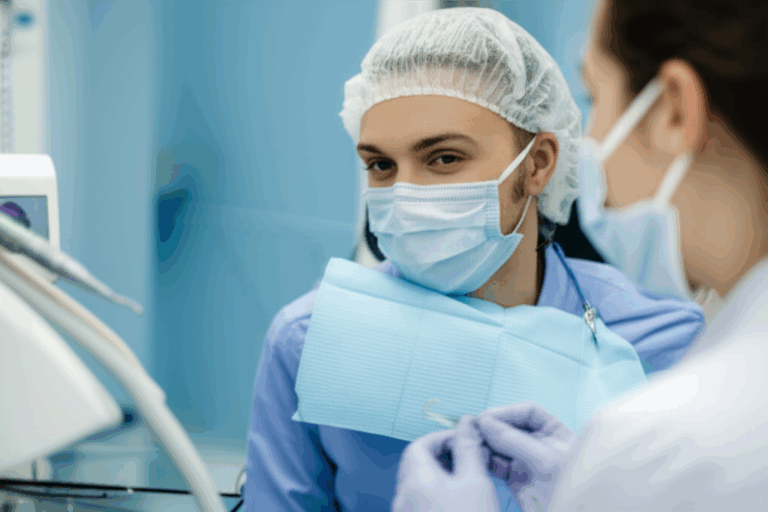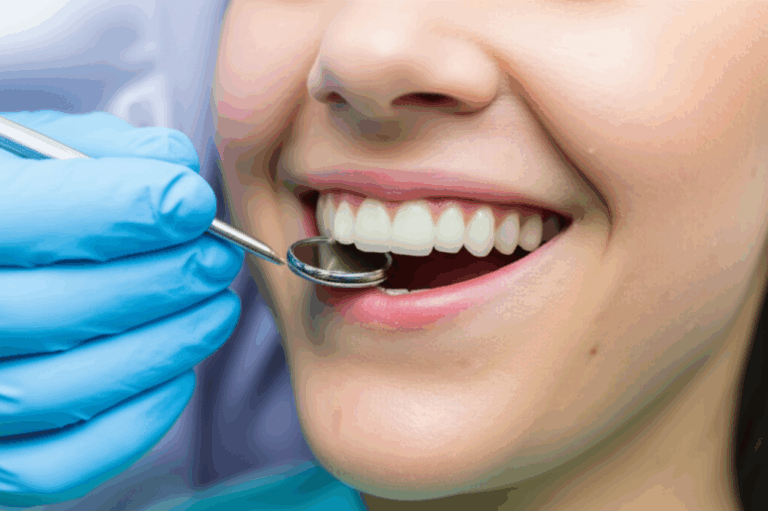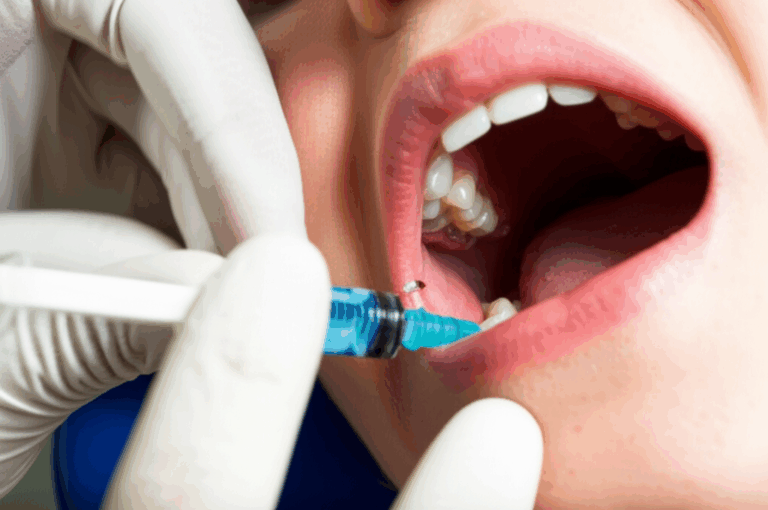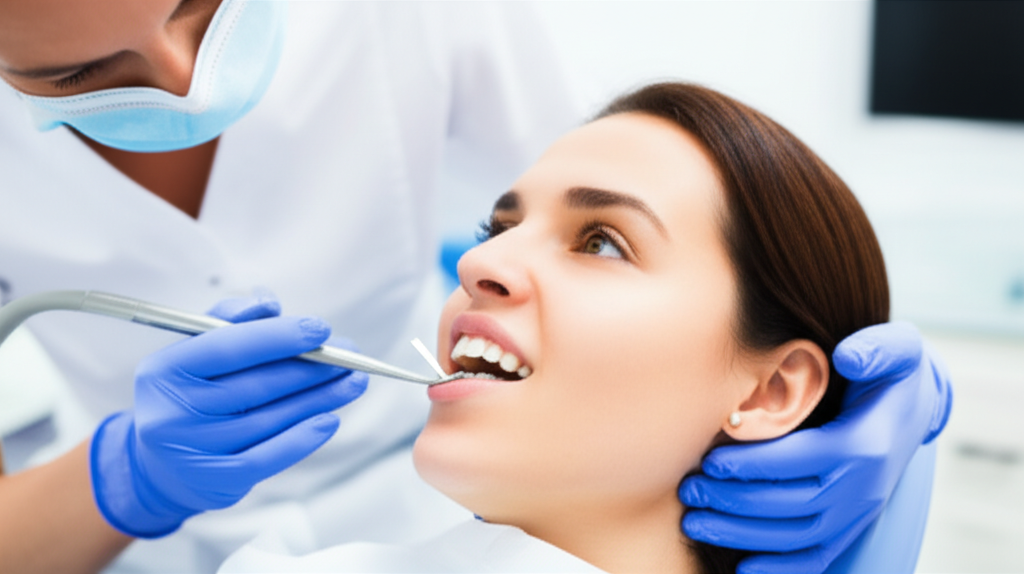
Can a Dentist Fix Bad Breath? Absolutely – Here’s How
Do you ever worry that your breath smells bad, even after you brush your teeth? You’re not alone. Bad breath, also known as halitosis, affects millions of people all around the world. But here’s the good news: dentists can definitely help fix bad breath. In this guide, I’ll share everything you need to know, from why your breath might be bad to how a dentist can help you. If you’ve been feeling embarrassed or annoyed about your breath, keep reading—you’ll find answers, solutions, and new confidence!
Table of Contents
1. Introduction: Why You’re Here
Let’s be honest. No one wants to worry about their breath, especially around other people. Maybe you’ve tried mouthwash or chewed extra gum, yet that odd smell just won’t go away. I’ve been there myself, meeting a friend and feeling worried something was off. Bad breath can make you feel shy and even make it hard to make friends or be comfortable at work. But here’s the thing: most bad breath problems can be fixed—and your dentist is your best helper.
Many people ask: Can a dentist really fix bad breath? The short answer is yes! Your dentist has the skills, tools, and knowledge needed to find out what’s wrong and help you get fresh breath you can feel good about.
2. Why Do People Get Bad Breath?
Before you can fix the problem, you need to know why it happens. Bad breath doesn’t just appear for no reason; there’s always a reason for it. Dentists have seen all kinds of causes, but here are the main ones:
- Bad Oral Hygiene: When you don’t brush or floss well, pieces of food and germs stay, especially between teeth and on your tongue.
- Gum Disease (Gingivitis & Periodontitis): Infected gums have pockets that trap bacteria. These germs make bad-smelling gases called volatile sulfur compounds, or VSCs.
- Cavities and Rotten Teeth: Decayed or broken teeth trap food and germs, which start to stink.
- Dry Mouth (Xerostomia): Spit helps keep your mouth clean. If you don’t make enough, your breath can start to smell.
- Tongue Coating: Have you ever seen a white or yellow layer on your tongue? That’s germs and old food, and it can make your breath smell bad.
- Bad Dental Work: Loose or old fillings, crowns, or dentures can trap tiny pieces of food. The germs living there are little factories for bad smells.
Some “Non-Oral” Causes
But there’s more. Sometimes, the cause isn’t even in your mouth! Dentists also look for:
- Tonsil Stones: These small, hard bits of germs and dead cells get stuck in your tonsils.
- Sinus Infections or Post-Nasal Drip: Mucus can drip down your throat and feed germs.
- Stomach or Digestive Problems (GERD): Stomach acid or other issues can bring up bad smells.
- Whole-body Diseases: Things like diabetes, kidney, or liver disease all have unique breath smells.
Here’s a helpful table to see the common causes:
| Oral Causes | Non-Oral Causes |
|---|---|
| Gum disease | Tonsil stones |
| Tooth decay | Sinus infections |
| Dry mouth | Digestive issues (GERD) |
| Food stuck between teeth | Whole-body diseases |
| Poor brushing/flossing | Some medicines |
| Tongue coating | Alcohol/tobacco |
3. Can a Dentist Really Cure Bad Breath?
“Yes, a dentist can cure most cases of bad breath.” Why? Because almost all bad breath cases start in the mouth. If you’ve tried all the home ideas—extra brushing, different mouthwash, or eating mints—and your breath still stinks, it’s time to see your dentist.
Think of it like this: If your sink is leaking, you can catch the water for a while (that’s your mouthwash). But soon, you need a plumber to really fix it. In the same way, a dentist is your “mouth plumber”—they’ll find and fix the real problem, not just cover it up.
I remember one patient, Sarah, who’d tried everything, but nothing worked. A quick check showed a small cavity and a tongue that needed a good cleaning. After two visits and better home care, her problem was gone. Dentists don’t just treat symptoms—they fix the real issue.
4. What Will the Dentist Look For?
Dentists check everything when finding the cause of your bad breath. Here’s what they do:
- Mouth Check: They look at your teeth, gums, tongue, cheeks, and under crowns or bridges for any sign of infection, rot, or plaque.
- Gum Disease Check: Are your gums swollen, red, or do they bleed easily? That’s a sign germs are causing trouble.
- Tongue Check: They look for coatings or color changes that show bacteria build-up.
- Check Old Dental Work: Old fillings, crowns, implants, or dentures can all cause problems if not fitted well.
- Check for Dry Mouth: Dentists can spot dry mouth quickly.
Sometimes, they use special tools, like a Halimeter, to measure weird gases in your breath.
5. How Does the Dentist Find Out the Cause?
Finding the real reason behind your bad breath takes some detective work. Here’s how a good dentist figures it out:
- Ask About Your Health: They’ll talk with you about your health, medicines, allergies, recent sickness, and even your diet or smoking.
- Medical History: Problems like diabetes, kidney, or liver disease give a certain “fingerprint” smell, so your dentist may ask about those.
- Breath Tests: Sometimes, dentists smell your breath (called organoleptic testing) or use a Halimeter or other tool for more accuracy.
- Refer If Needed: If nothing in your mouth looks wrong, the dentist may send you to another doctor—like an ENT for sinus problems or a stomach doctor for tummy issues.
This step-by-step process finds the one thing that keeps your breath from smelling good—and shows how to fix it.
6. What Dental Treatments Can Fix Bad Breath?
Once your dentist finds the cause, they get to work. Here’s how they help:
Professional Dental Cleaning
Plaque and tartar build up over time on your teeth and under your gums. Your dentist or dental hygienist will:
- Scrape and polish your teeth
- Clean deeply around your gums
- Get rid of bacteria traps
Even just one good cleaning can cut bad smell-causing VSCs by up to 70%!
Treat Cavities, Gum Disease, or Mouth Infections
If you have:
- Cavities → The dentist fills them.
- Gum disease → They may do a special cleaning called scaling and root planing.
- Infections → They give you medicine or clean the area until it’s healthy.
Fix or Replace Bad Dental Work
Loose or old crowns or bridges? The dentist can fix or replace them so food can’t get stuck.
Better Oral Care Tips
Lots of people think they brush well—but still miss spots every day. Your dentist will:
- Show you the best ways to brush, floss, and scrape your tongue.
- Suggest good products, like antiseptic mouthwash or toothpaste for dry mouth.
Help for Home Care, Diet, and Habits
They’ll guide you to:
- Drink more water if your mouth is dry
- Avoid smelly foods (like onions or garlic) before big events
- Use less tobacco and alcohol, since both make breath worse
Bigger Problems?
If you need help with dental implants, crowns, veneers, or new teeth, a specialized crown and bridge lab can make sure your dental work fits perfectly—and keeps bad smells away.
7. What Can I Do at Home to Help My Breath?
Even with the best dentist, what you do at home matters! Here’s what works:
- Brush Two Times a Day: Try for two minutes each time.
- Floss Every Day: This gets the yucky stuff between teeth where your brush can’t reach.
- Scrape Your Tongue: Use a tongue scraper or the back of your brush.
- Drink Water: Sip water all day. Saliva is your friend against bad mouth germs.
- Go Easy on Smelly Foods: Garlic, onions, spicy food, and some cheeses stick around on your breath.
- Don’t Smoke: Tobacco doesn’t just smell, it hurts your gums and teeth.
- Watch Out for Alcohol: Drinks and even some mouthwashes can dry out your mouth.
Here’s a simple checklist you can save or print:
| Daily Habit | Good for Breath? |
|---|---|
| Brushing twice | Yes! |
| Flossing | Absolutely |
| Scraping tongue | Yes |
| Drinking water | Yes |
| Chewing sugarless gum | Yes |
| Smoking | No |
| Drinking alcohol | Be careful |
| Eating garlic/onion | In moderation |
8. When Should I See a Dentist for Bad Breath?
So when does everyday bad breath stop being “normal” and become a reason to see your dentist? Look for these signs:
- Your breath smells bad all the time, even after brushing and mouthwash.
- Your gums are sore, bleeding, or you have a toothache.
- You have a weird taste or your mouth is really dry.
- You haven’t seen your dentist in more than 6 months.
- Nothing you try at home works.
If this sounds like you, book a visit. It’s better to find the answer sooner rather than later.
Some dental devices, like removable dentures or braces, also need special cleaning. Your dentist may work with a trusted removable denture lab to give you the best advice and help for your needs.
9. Real-Life Success Stories and Interesting Facts
Here’s something to make you smile: Studies show up to 50% of adults have bad breath at some point. This is really common! Almost all cases come from the mouth, not some mystery sickness.
True Story: Someone once went to a china dental lab because her breath wouldn’t get better, even with all kinds of brushing. The problem? An old denture wasn’t being cleaned the right way. Her dentist worked with the lab to fix the fit, gave her special cleaning tools, and her family noticed the change right away!
Some more facts:
- A good dental cleaning and doing things right at home can cut stinky gases by up to 70%.
- Tongue scraping alone can cut bad breath by up to 75%.
- Gum disease is the top reason for smelly breath—get it treated, and most people see change in days.
Fun fact: Having a dry mouth can double the chance of having bad breath. That’s why drinking water and using spit substitutes is helpful.
10. Frequently Asked Questions
Q: Are home remedies like mouthwash enough to fix halitosis?
A: Mouthwash may cover the smell, but only your dentist can find and fix the real cause.
Q: Can cavities cause bad breath?
A: Yes! Tooth decay holds food and germs, leading to bad smells.
Q: What if the dentist says my mouth is healthy, but I still have bad breath?
A: You may be sent to another doctor (like an ENT or a stomach doctor) to look for sinus, tonsil, or stomach problems.
Q: What kind of doctor treats bad breath that isn’t dental?
A: ENTs (ear, nose, throat doctors) and stomach doctors are usually next.
Q: How do dentists measure bad breath?
A: Besides smelling your breath, dentists might use a “Halimeter” to measure gases or just look around your mouth.
If you need other things like dental ceramics or custom dental devices, your dentist might work with a dental ceramics lab for better oral health and fresh breath too.
11. Summary: Key Takeaways You Can’t Forget
- Most bad breath starts in your mouth. Dentists fix it all the time.
- Common causes: Bad hygiene, gum disease, dry mouth, tongue coating, bad dental work.
- Dentists use checkups, questions, and special tools to find the problem.
- Dental cleaning and fixing mouth issues help almost everyone.
- Your habits—brushing, flossing, scraping, and drinking water—are important.
- If your breath still smells, see your dentist.
- Special labs and better dental devices can help in tough cases.
- You’re not the only one—lots of people have bad breath, and dentists know how to help.
- Don’t let feeling shy keep you from help. Fresh breath and a happy smile are just a dentist visit away!
If you’re fighting bad breath, don’t wait. Ask your dentist today and get the help you need. Fresh breath is possible, and your dentist is ready to help!
References:
- American Dental Association
- Journal of Periodontology
- International Journal of Dental Hygiene
- Journal of the American Dental Association
- Oral Diseases Journal

